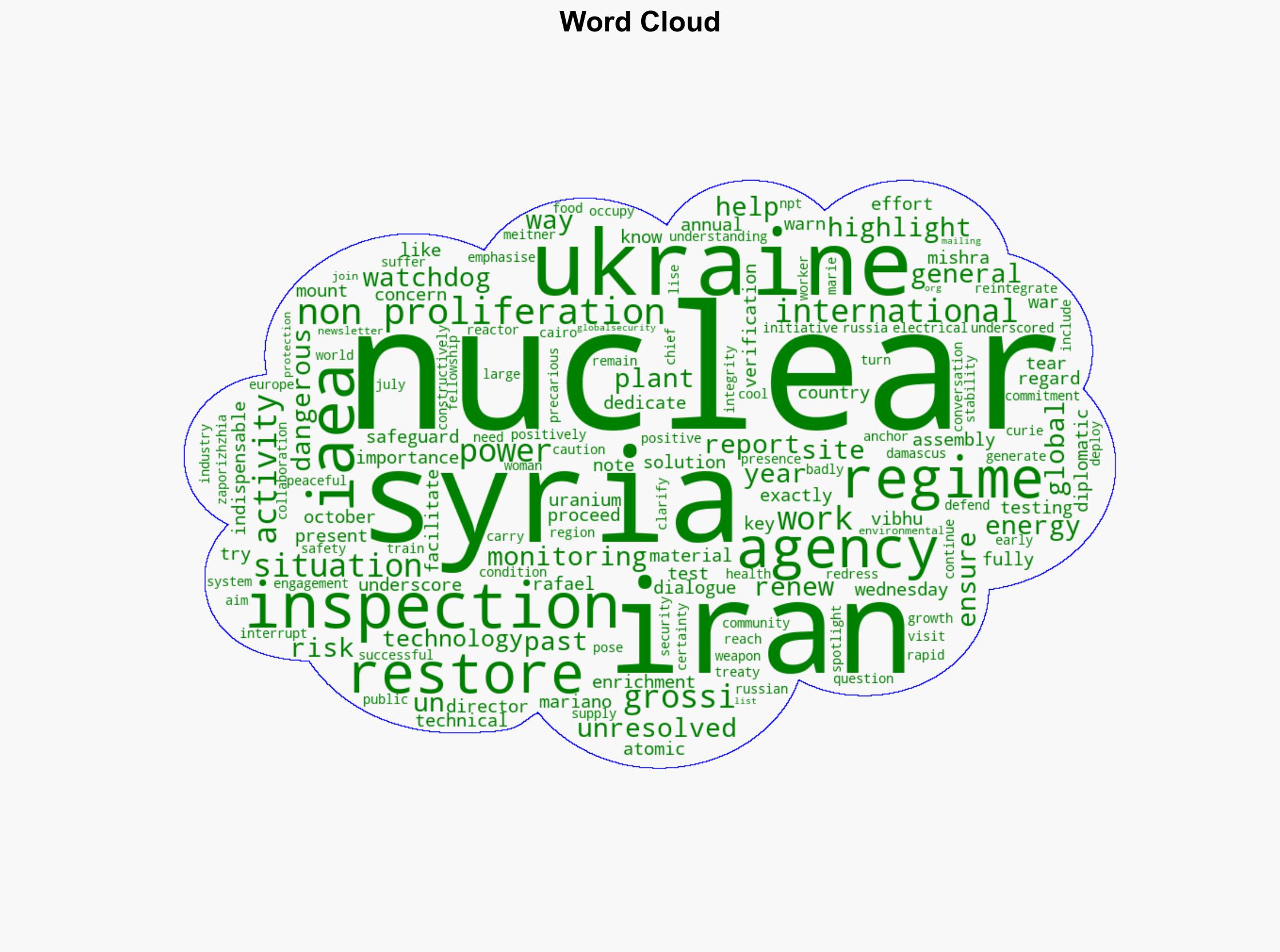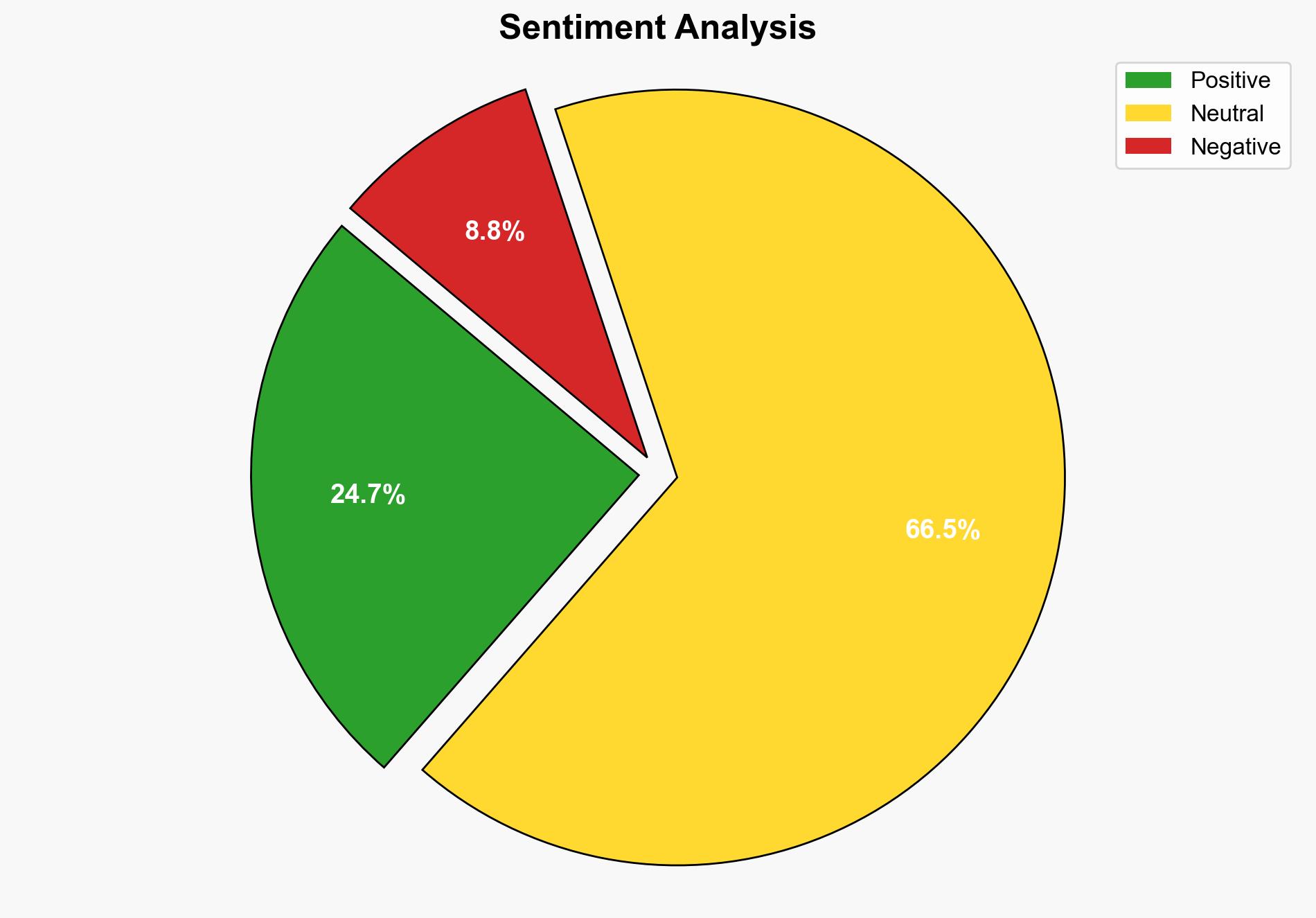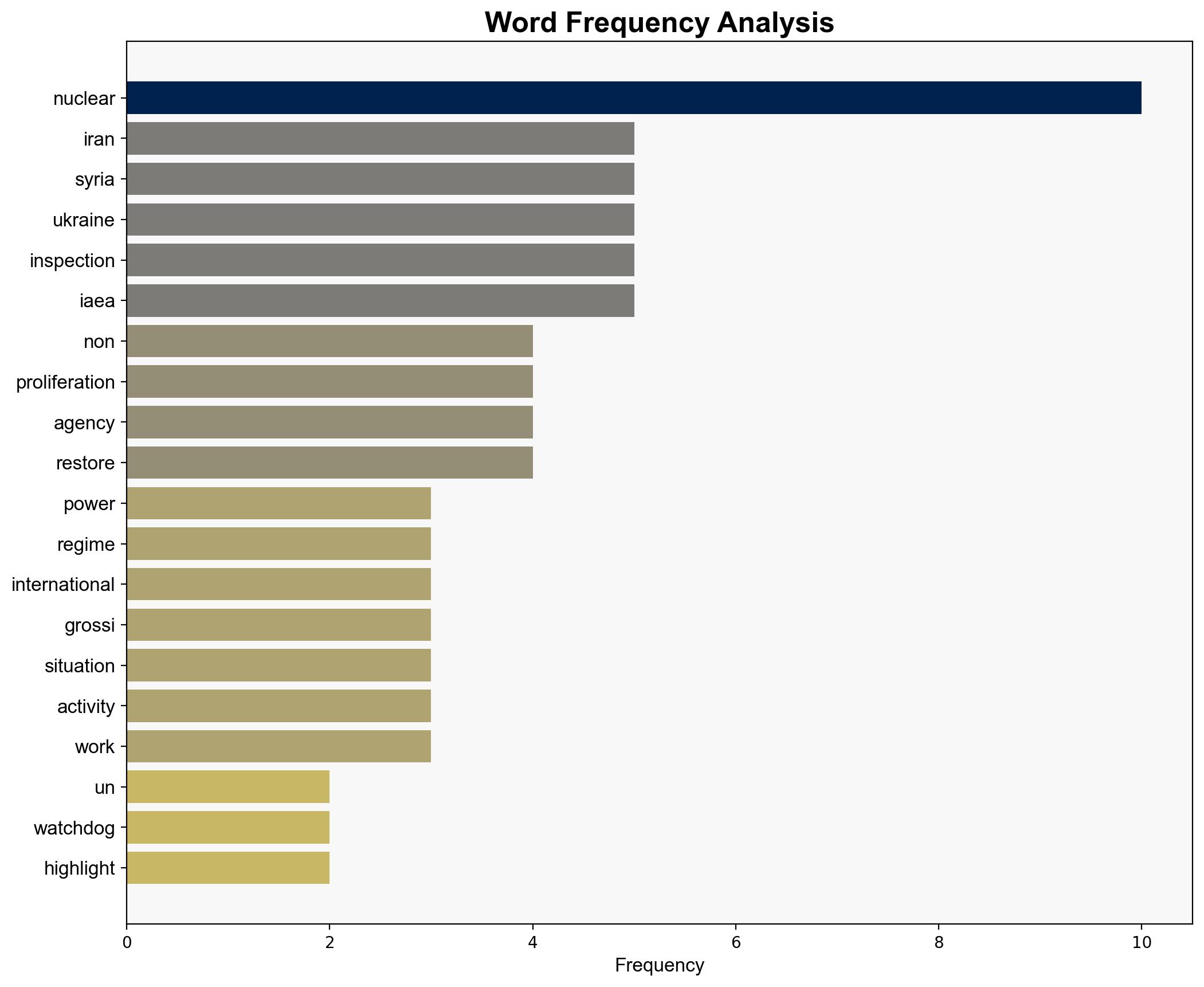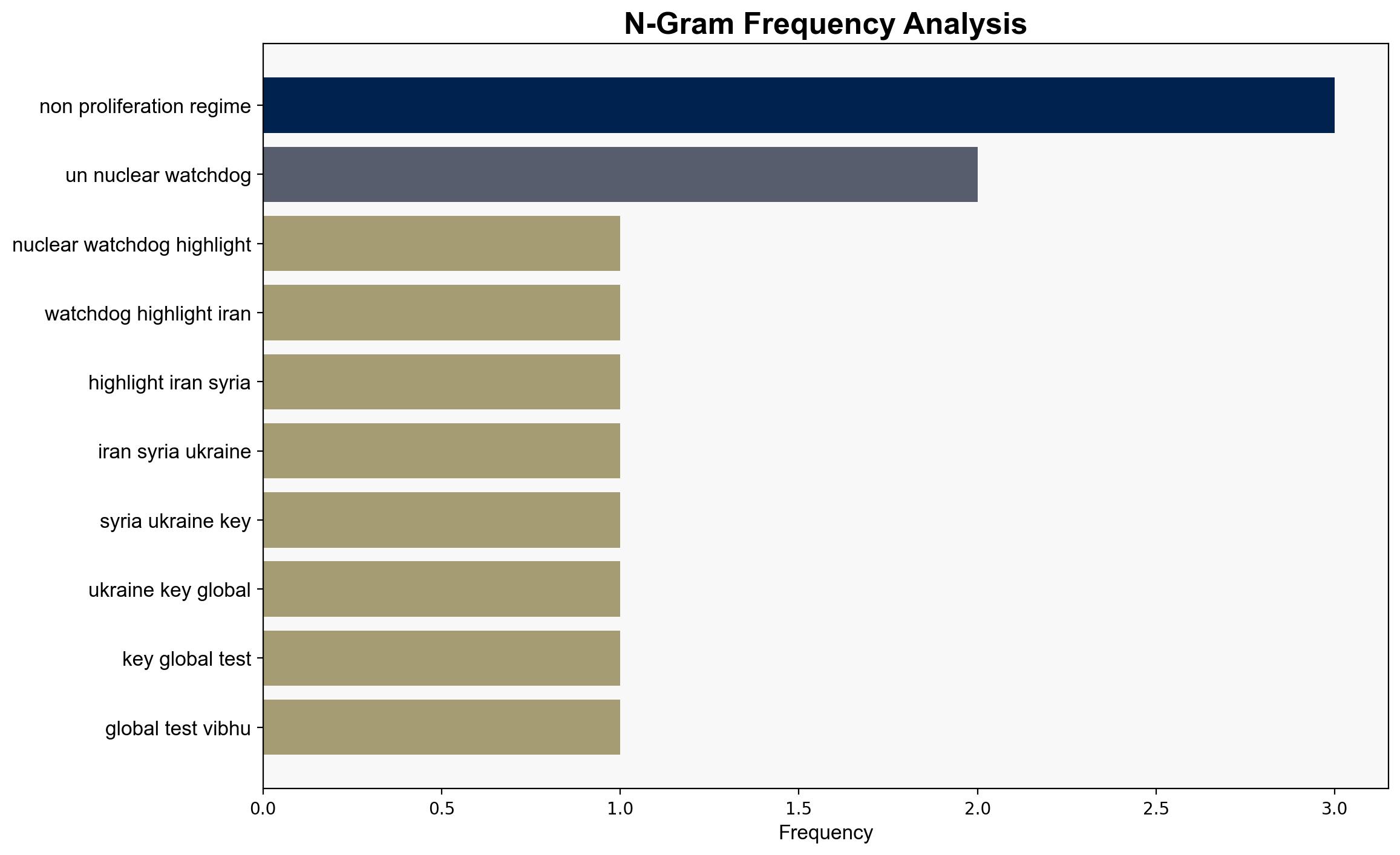UN nuclear watchdog highlights Iran Syria and Ukraine as key global tests – Globalsecurity.org
Published on: 2025-10-30
Intelligence Report: UN nuclear watchdog highlights Iran, Syria, and Ukraine as key global tests – Globalsecurity.org
1. BLUF (Bottom Line Up Front)
The International Atomic Energy Agency (IAEA) has identified Iran, Syria, and Ukraine as critical challenges to global nuclear non-proliferation. The most supported hypothesis suggests that geopolitical tensions and unresolved nuclear issues in these regions could undermine international stability. Confidence Level: Moderate. Recommended action includes enhancing diplomatic engagement and strengthening inspection regimes to prevent nuclear proliferation.
2. Competing Hypotheses
Hypothesis 1: The IAEA’s focus on Iran, Syria, and Ukraine is primarily driven by genuine nuclear non-proliferation concerns and the need to maintain international security.
Hypothesis 2: The emphasis on these regions serves broader geopolitical interests, potentially using nuclear issues as leverage in international diplomacy.
Using Analysis of Competing Hypotheses (ACH), Hypothesis 1 is better supported due to the IAEA’s consistent historical focus on non-proliferation and technical assessments. However, Hypothesis 2 cannot be entirely dismissed given the geopolitical complexities and strategic interests involved.
3. Key Assumptions and Red Flags
Assumptions include the IAEA’s impartiality and the technical nature of its assessments. A potential red flag is the lack of transparency in some countries’ nuclear activities, which may lead to biased interpretations. There is also a risk of cognitive bias in assuming that all parties are equally committed to non-proliferation.
4. Implications and Strategic Risks
Failure to address nuclear issues in these regions could lead to proliferation, regional arms races, and increased global insecurity. The situation in Ukraine poses a direct threat due to the potential for nuclear accidents amidst conflict. Economic sanctions and diplomatic isolation may exacerbate tensions, while cyber threats could target nuclear facilities, complicating resolution efforts.
5. Recommendations and Outlook
- Enhance diplomatic efforts to facilitate dialogue and inspections in Iran and Syria.
- Support Ukraine in securing its nuclear facilities and mitigating risks from ongoing conflict.
- Scenario Projections:
- Best Case: Successful diplomatic resolutions lead to restored inspections and reduced nuclear risks.
- Worst Case: Escalation of conflicts results in nuclear proliferation and regional instability.
- Most Likely: Continued diplomatic stalemate with periodic progress in inspections.
6. Key Individuals and Entities
Rafael Mariano Grossi, IAEA Director General; International Atomic Energy Agency (IAEA).
7. Thematic Tags
national security threats, nuclear non-proliferation, geopolitical tensions, regional focus





